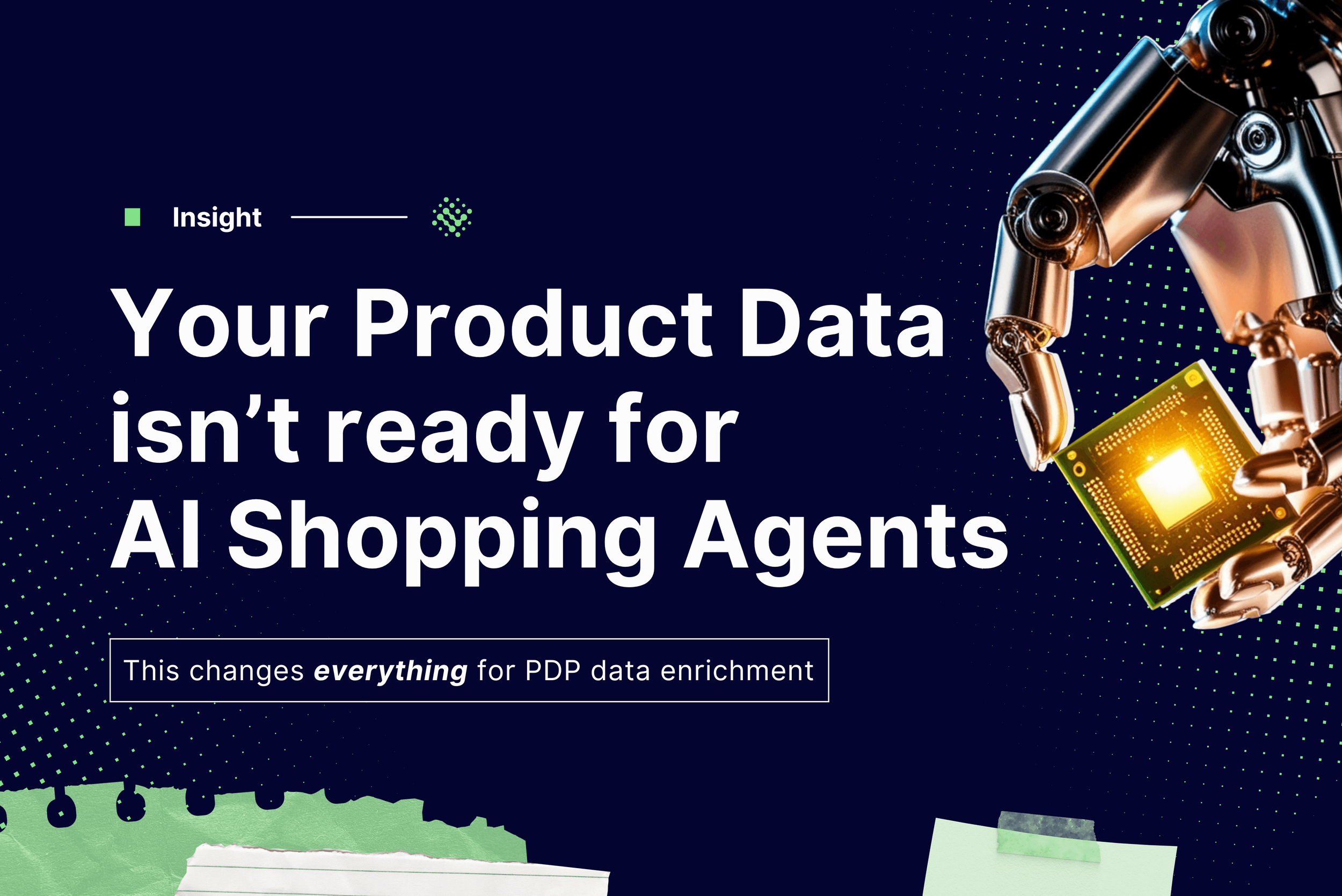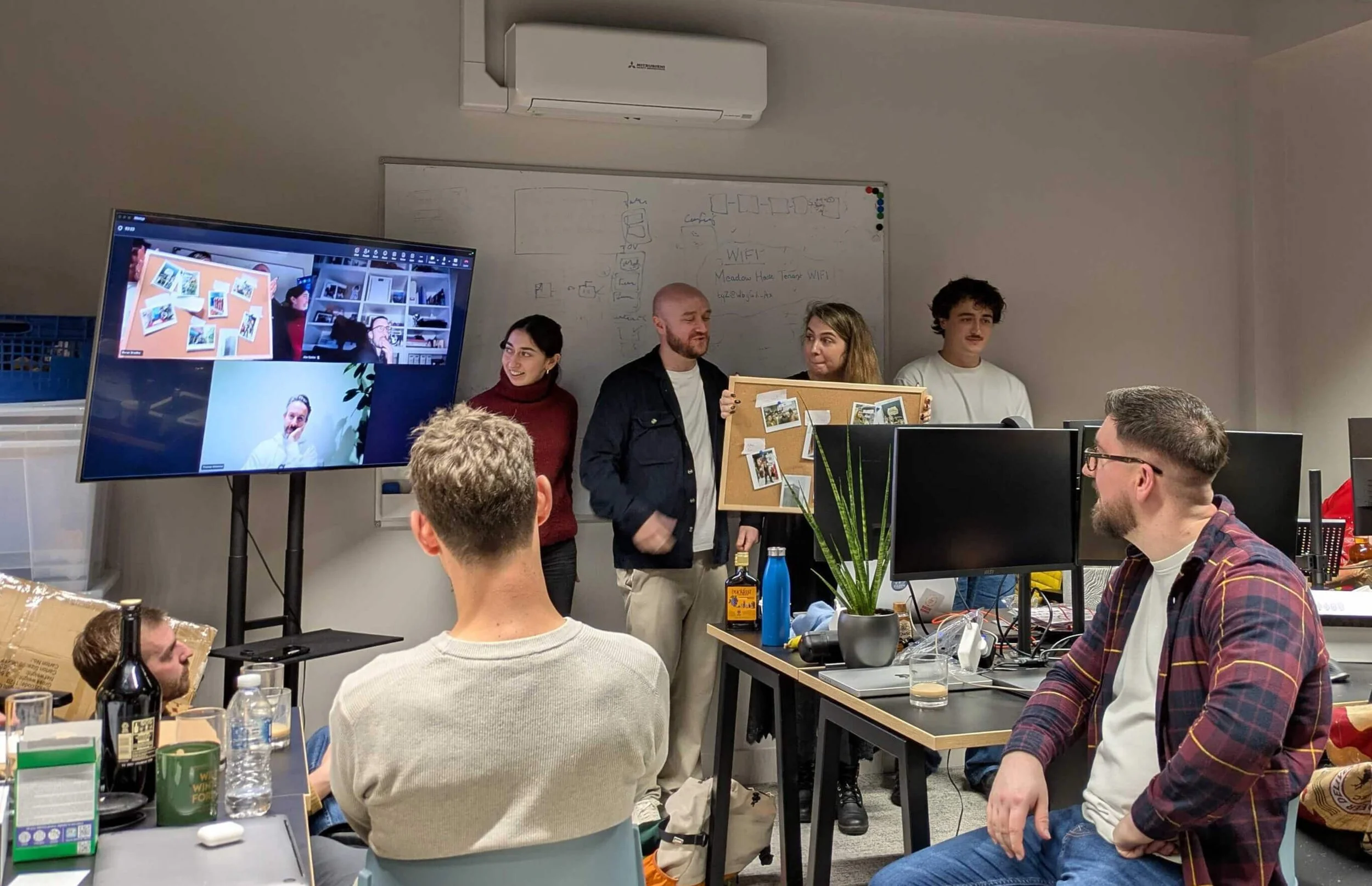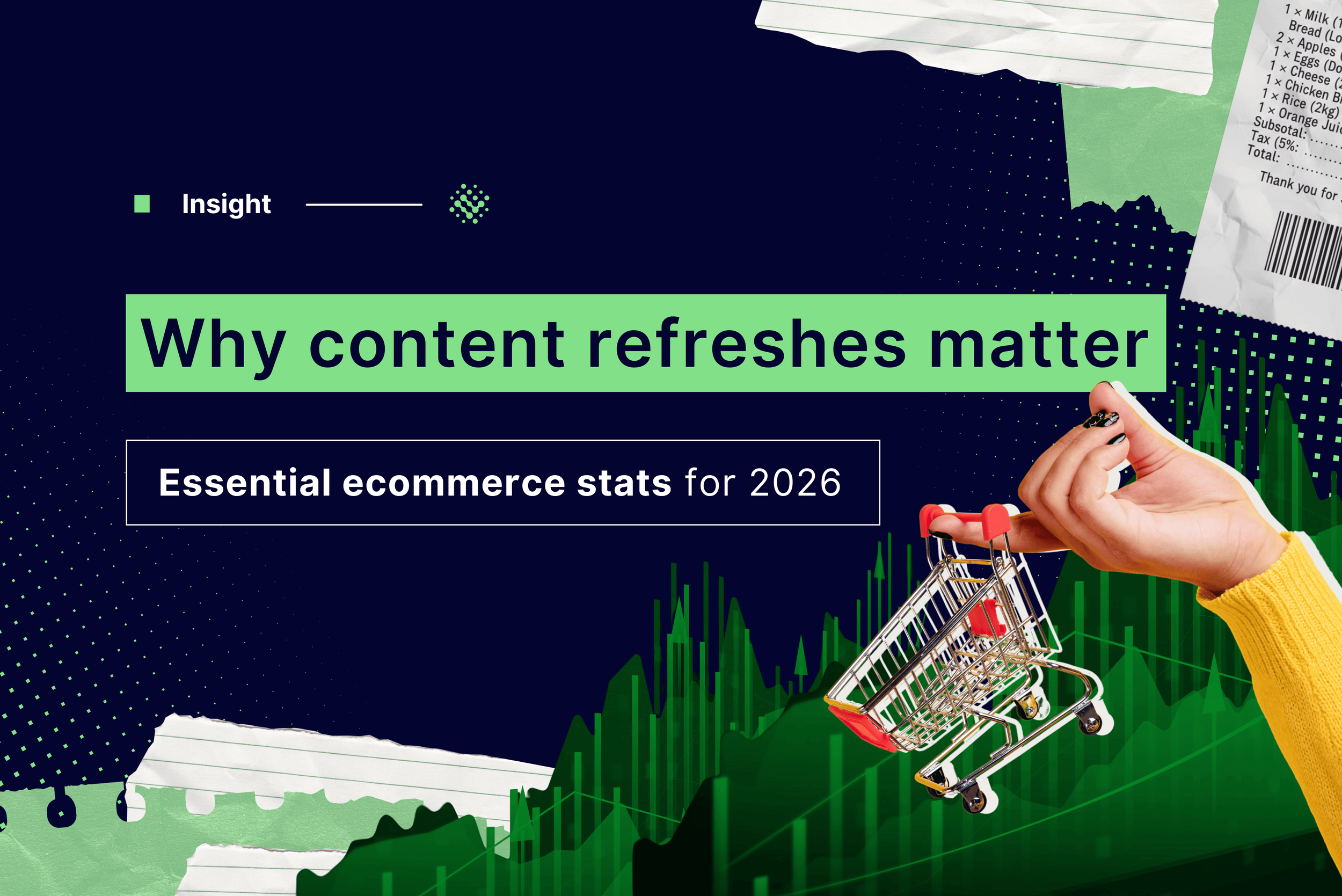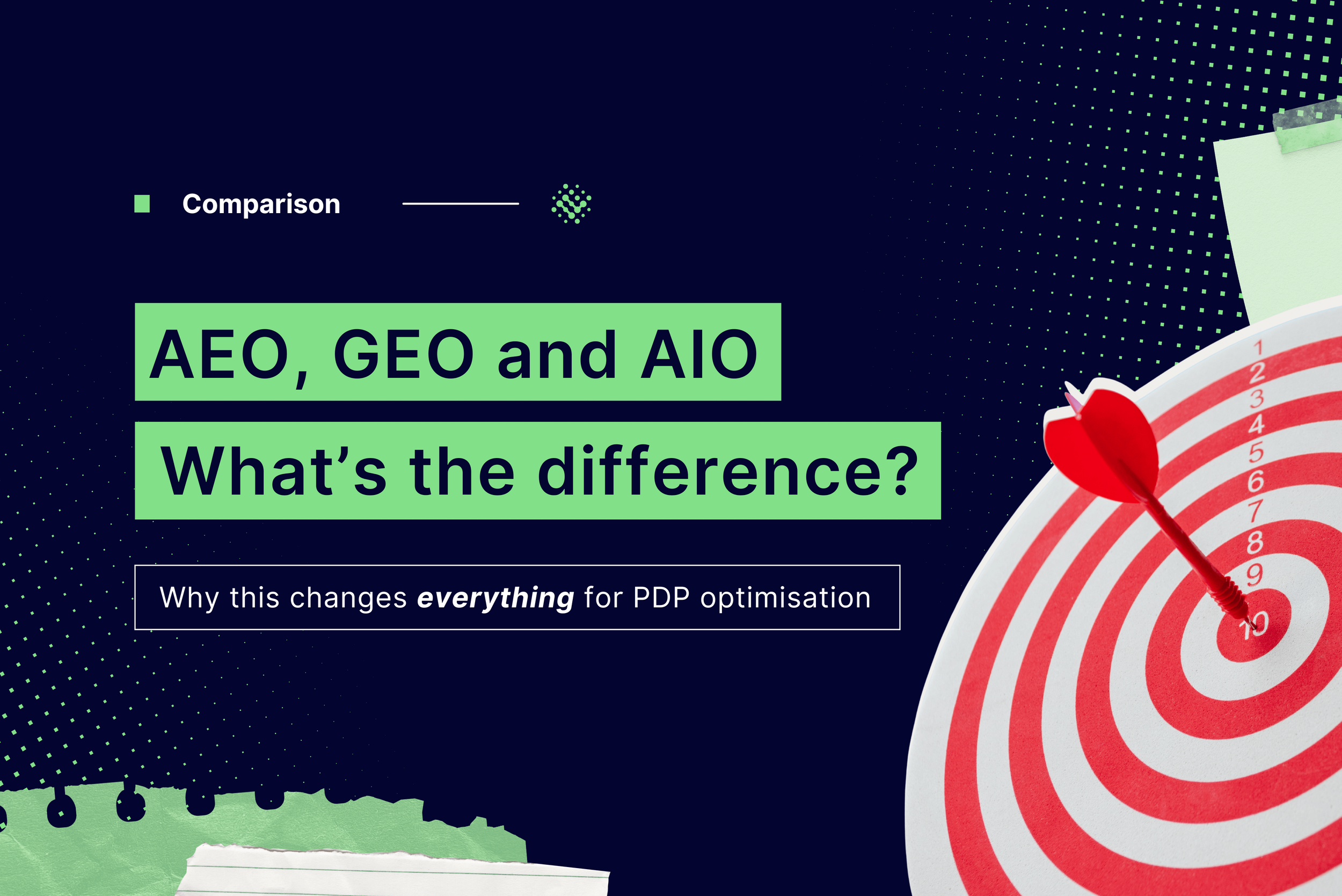Why ChatGPT isn't the Solution for Ecommerce Content Optimization
For all its virtues, ChatGPT just can’t write convincing ecommerce product copy. Here’s why ecommerce brands should avoid the mainstream LLM for PDP optimization.
ChatGPT won’t optimize your PDPs
First things first, let’s agree that Product Detail Page optimization is absolutely vital for driving ecommerce conversions. It’s the honest truth that getting your products seen by more people is basically always a good thing. Unoptimized PDPs don’t rank in search engines, leaving valuable traffic on the table – and worse, they tend to confuse and alienate the few customers that actually make it onto your site.
So, PDP optimization is kind of a big deal.
To ward off the threat of unoptimized-PDP Tartarus, businesses tend to explore a small gamut of tools and technologies that these days tend to involve AI. However, while AI offers ecommerce brands immense potential, not all AI models are created equal.
Though ChatGPT – a powerful language model developed by OpenAI – is often the first point of call, it may not be the wisest optimization tool for ecommerce brands to stick with long-term. Because, while ChatGPT excels in many areas of natural language processing, it falls short when it comes to optimizing PDPs at scale across an entire (or multiple!) ecommerce site.
ChatGPT’s Context Understanding is Too Limited
ChatGPT, like many language models, operates on a conversational basis, generating text based on the context provided. However, when it comes to the intricate nuances of PDP optimization, ChatGPT may struggle. Often, it will seize on incorrect benefits that don’t make sense in the intended context of a product. In one example seen by the Ocula team, a frying pan intended for personal kitchen use was described as “all set to sparkle from morning coffee to last orders”. Similarly, ChatGPT’s American heritage means it’s often less adept at writing for British, Canadian, or international contexts – especially in languages other than English.
Effective PDP optimization requires a deep understanding of product attributes, industry-specific terminology, locality, and consumer psychology, which tends to exceed ChatGPT's contextual understanding.
ChatGPT Is Bad at SEO Optimization
SEO optimization is crucial for ensuring PDPs rank prominently in search engine results, driving organic traffic and increasing visibility. A DemandSage report in 2025 confirmed that 68 % of all online experiences start with a search engine, highlighting the undeniable value of SEO in capturing customer attention. And real-world examples illustrate this well – one 2022 case study showed how a fashion retailer increased organic traffic by 42 % and organic sales by 62 % in just three months after adding SEO-focused copy and keywords.
While ChatGPT can streamline the PDP writing process, it doesn’t automatically or consistently embed SEO best practices – things like research-backed keyword usage, optimized meta titles/descriptions, descriptive alt tags, schema markup, and structured headings. In fact, Google rewrites 61% of title tags that don’t meet its standards. (And if you want to know how to regain control of your branding and stop this from happening, read this guide.)
As a result, relying solely on ChatGPT for SEO optimization probably won’t yield the desired results in terms of improving PDP visibility and driving traffic.
ChatGPT Lacks Personalization and Adaptability
Successful PDP optimization often involves tailoring content to specific target audiences, considering factors such as demographics, preferences, and purchasing behaviour. ChatGPT lacks the ability to personalize content dynamically based on user characteristics and brand tone of voice. Without personalized and adaptable content, ChatGPT generated PDPs may fail to resonate with target audiences and drive conversions effectively.
Complexity of Content Optimisation
PDPs often include multimedia elements such as images, videos, and interactive features, which play a crucial role in engaging and informing shoppers. Optimising these elements requires more than just textual input; it involves analysing and enhancing visual and interactive components to create a cohesive and immersive shopping experience. ChatGPT's focus on text generation limits its ability to optimise elements comprehensively.
While ChatGPT undoubtedly offers valuable capabilities in natural language processing and content generation, its suitability for optimising full website's product display pages is limited. Ocula’s AI Copywriter is designed specially for PDP optimisation and can increase pages conversations rates by 15% by taking all of the above elements and considering SEO, brand tone of voice and content optimisation.







